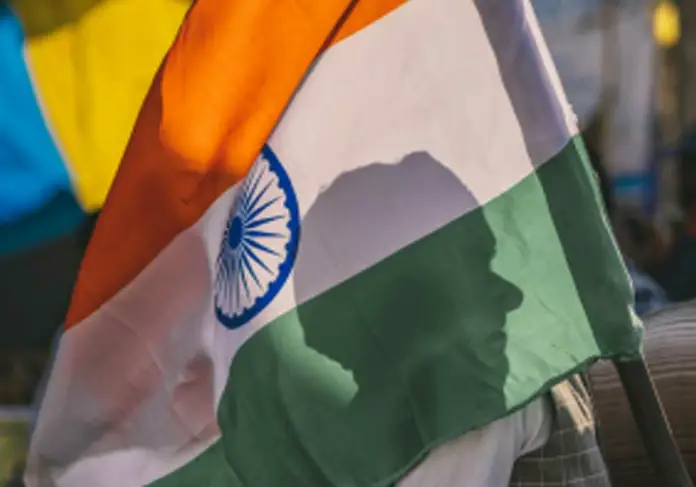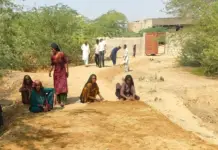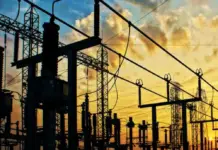By Maria Mansab
A court in India’s most populous state has invalidated legislation regulating madrasas, thereby prohibiting Islamic schools. This decision was made weeks before a nationwide election that has the potential to exacerbate religious divisions. The Madrasa Act of 2004 was deemed illegal by the Allahabad High Court in Uttar Pradesh, which subsequently mandated the state government to relocate children within the Islamic educational system to mainstream institutions.
The high court stated in its ruling that the Madrasa Act, 2004, violates the principle of Secularism, which is an integral part of the Constitution of India. This assertion constitutes a blatant infringement upon fundamental human rights. It is important to note that the Constitution of India under articles 25 to 28 ensures the entitlement to freedom of religion for both individuals and religious groups.
Furthermore, the constitutional protection of the right to education is evident in India. The Indian Supreme Court, in the case of Unni Krishnan v. State of Andhra Pradesh (1993), ruled that the right to education is a component of the fundamental right to life as stated in Article 21 of the Indian Constitution. The current judicial decision unequivocally asserts that India, under the Modi administration’s ethno-nationalist policies, is depriving the general populace of their fundamental rights.
The general election in India, scheduled to take place from April to June, is anticipated to result in a victory for the BJP led by Modi. The BJP members and affiliates have been engaging in the promotion of anti-Islamic hate speech and vigilantism, as well as the demolition of Muslim-owned homes, to secure electoral victory. Additionally, this act serves as a pre-election political maneuver by Modi. The BJP’s pursuit of a Hindu nationalist agenda has estranged religious minorities, specifically directed towards the 210 million Muslims in the country in recent years.
Freedom House, a US-based democracy watchdog, degraded India from a free democracy to a “partially free democracy.” Similarly, the Swedish-based V-Dem Institute labeled the country as an “electoral autocracy.” India has experienced a Hinduization process, which is nearing completion due to crackdowns on fundamental rights and Modi’s exclusionary Hindu nationalist policies.
India is undergoing a gradual transformation from a multicultural secular nation to a Hindu supremacist one. Therefore, asserting that Madrasa education in India is anti-secular is a purely electoral strategy aimed at increasing support for the upcoming election and transforming India into a Hindutva state, given that international organizations have revoked India’s secularist status.
The Modi government is implementing legislative, administrative, and cultural reforms aimed at transitioning India from a secular democratic republic to an authoritarian Hindu-supremacist state. The passing of the CAA serves as a notable illustration of a discriminatory measure targeting Muslims.
The Hindu population constitutes a significant majority of India’s 1.4 billion inhabitants, and there has been an increasing demand in recent times from religious right-wing factions to officially designate India as a Hindu nation and establish Hindu supremacy within the legal framework. The prohibition of Islamic education in India contributes to this strategy. The BJP’s assertive Hindutva policies marginalize religious minorities and consider them as second-class citizens.
In recent times, the prohibition of the Islamic headscarf, in educational institutions has sparked tensions and protests in southern India between Hindus and Muslims. In December 2020, a legislative measure was enacted in the northeastern state of Assam, mandating the conversion of all Islamic schools into conventional educational establishments.
Certain states under the rule of BJP have used bulldozers to demolish the homes and shops of Muslim protestors, as a form of collective punishment. Hindu factions have asserted ownership over certain Islamic structures, asserting that these sites were constructed on top of temples during the period of Muslim rule. The demolition of the Babri masjid and the subsequent construction of the temple serve as a notable illustration of this phenomenon.
The old liberal system is failing in the face of surging ethnic nationalism, eroding India’s status as the world’s largest democracy and casting doubt on its future as a secular state. Growing theological differences have fueled mistrust between Muslims and Hindus, which has harmed interpersonal ties and increased intolerance.
A situation of unrest has been sparked in India among Muslims as a result of the verdict handed down by the Indian High Court regarding the prohibition of madrassas. This decision has affected 2.7 million pupils in the state of Uttar Pradesh by its very nature. This prejudice must be brought to the attention of the world at the right level to bring the reality of the Indian government to light.
Pakistan should highlight this decision as discriminatory to Muslims in international forums because cultural/religious variety is meant to be the strength of a democracy, as India claims. It is imperative to push for the designation of India as a Country of Particular Concern, as the United States Commission on International Religious Freedom (USCIRF) has consistently voiced its apprehensions regarding India’s deliberate targeting of religious minorities. By doing so, the International Religious Freedom Act of 1998 would impose a range of economic sanctions.
The notion that India is indigenous to the Hindu race has become so ingrained that it has permeated even the most liberals. Since the 2014 election, the BJP’s brand of Hindu nationalism has dominated politics, casting doubt on the sustainability of the secularist tradition and commitment to diversity in the country.







